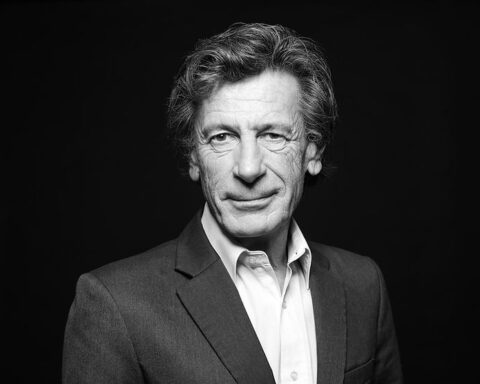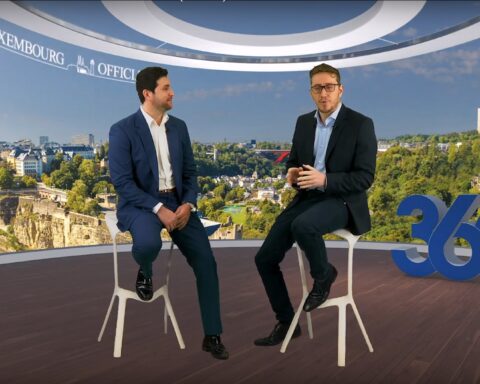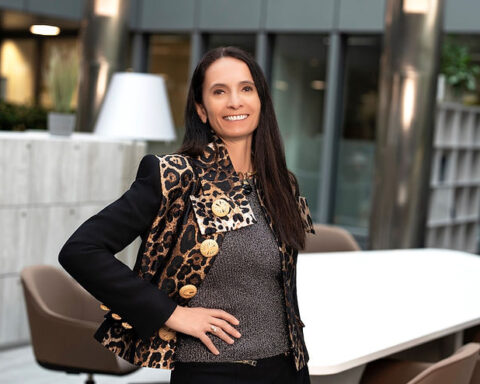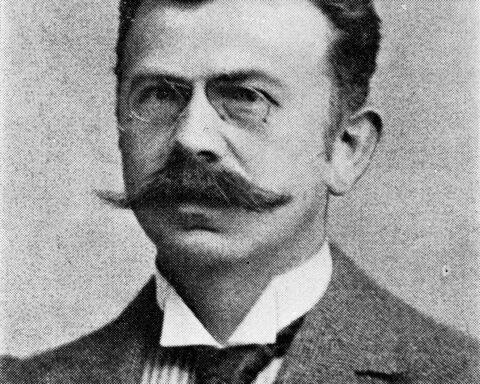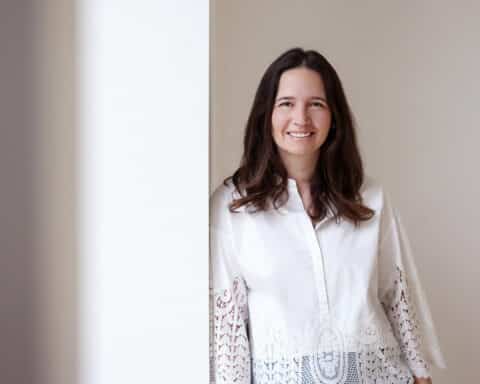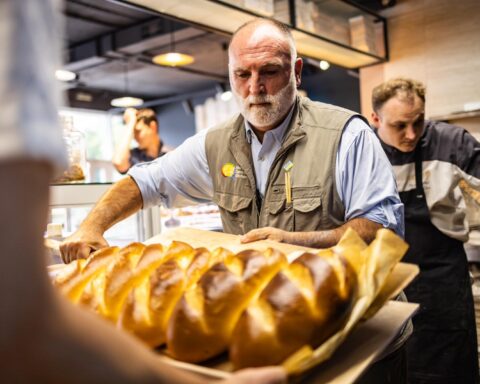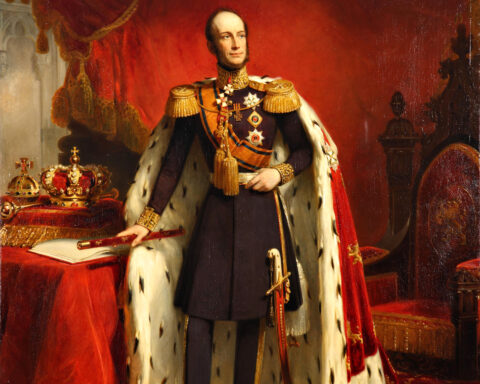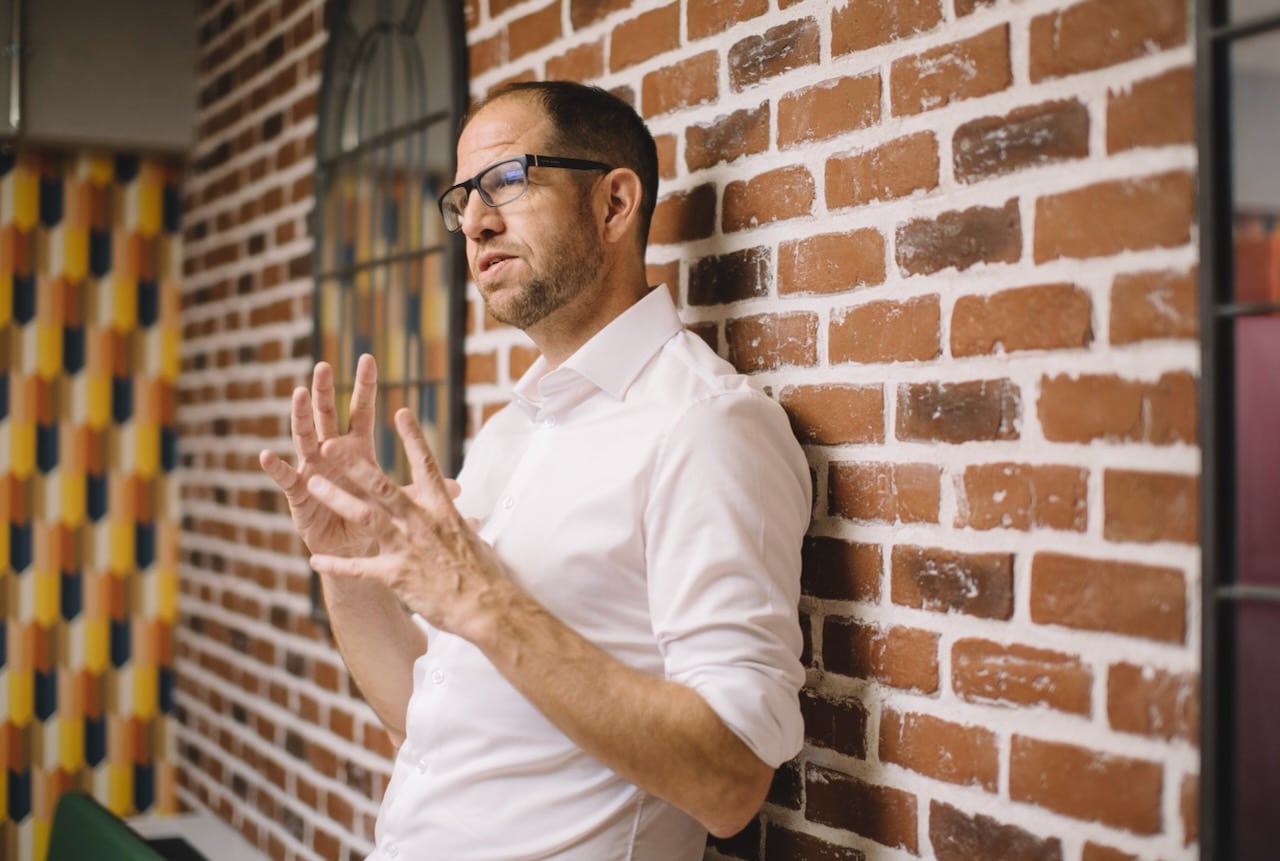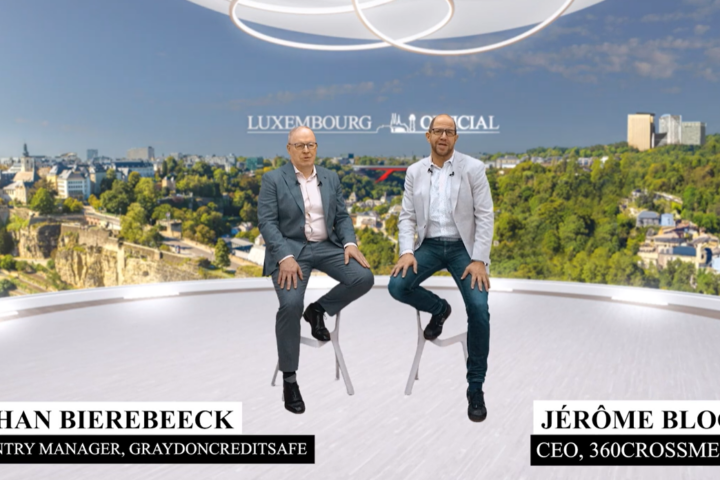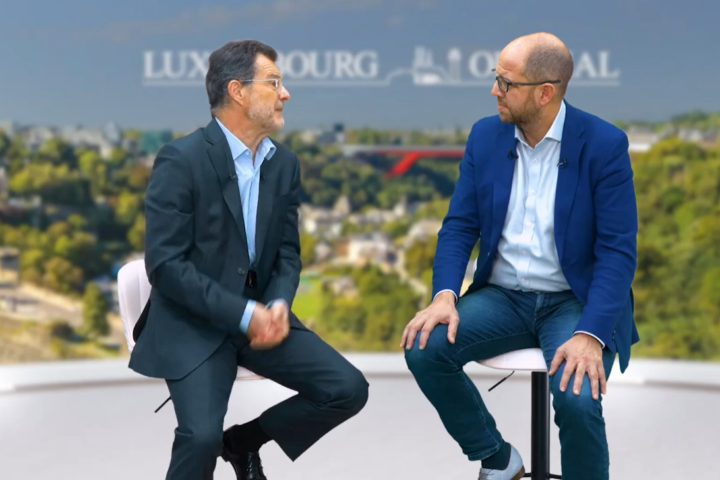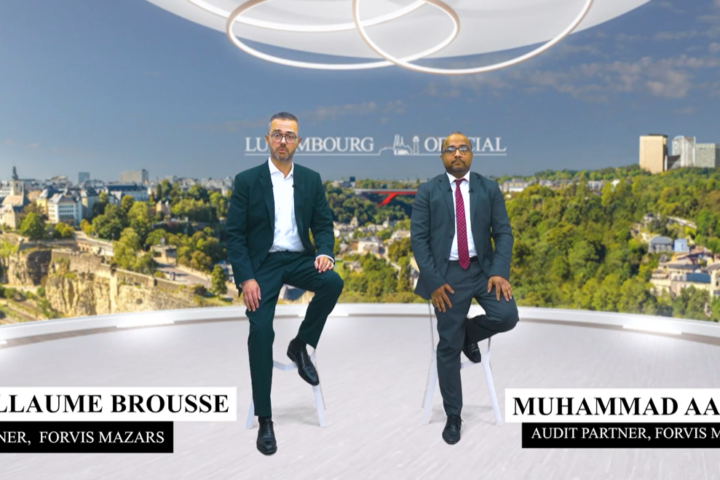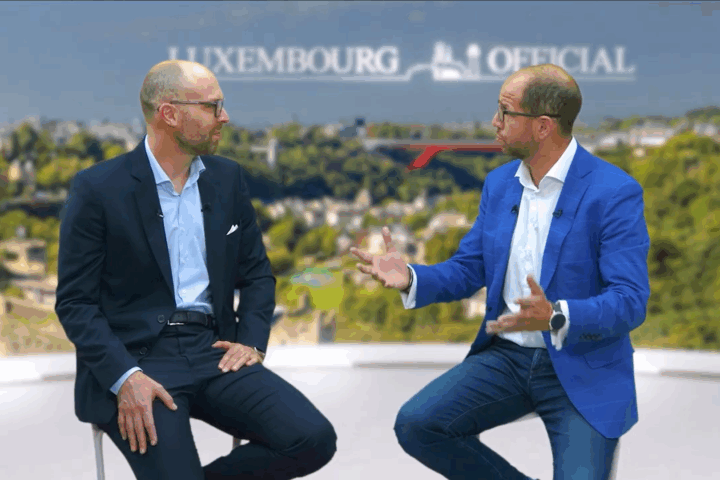What began in May 2023 with LinkedIn posts criticizing the lack of debates during the election campaign ended 15 months and 11.5 million views later at the Hôtel de Bourgogne with an interview of Luc Frieden, the Prime Minister. Jerome Bloch answers our questions. Interview
How would you summarise the origin of your posts?
I had been posting on LinkedIn for a long time about content related to the activities of 360Crossmedia, my communication agency, but I decided to start publishing political posts in May 2023 based on a simple observation: politicians in Luxembourg avoid important topics during election campaigns. As a result, they find themselves unable to carry out the necessary reforms after being elected.
What were your objectives?
Initially, I simply wanted to share important figures and expose the mechanism that led to 10 years of Gambia coalition, whose last seven years I found very inefficient at a crucial time for the country’s economy. I love popularisation blogs like “Hugo Décrypte” in France or Lex Fridman in the United States, or my favourite: “Everyday Astronaut”. They all have in common the sharing of interesting content, easy to understand, backed by in-depth research. This involves a lot of work, but the intellectual satisfaction is worth it, especially when thousands of people engage with your content.
How often do you publish?
The political posts are easily recognisable: they are blue and yellow. I publish one per day. My routine involves getting up at 6 a.m. to choose my theme and conduct the research. I post between 7:30 and 8 a.m., depending on the complexity.
What do you gain from these posts?
LinkedIn is the only platform that does not allow you to monetise your audience. However, I appreciate the way trolls are filtered out by the algorithm. Two insults and your account is blocked! I’ve tested X (formerly Twitter) and Instagram: I do not like the tone of the comments there. The issue with my posts is that I publish non-consensual information about our Ministers, civil servants, regulators, banks, the press, or certain companies, with a very direct tone. It’s not an smart strategy to generate benefits! I have received explicit threats and have been subjected to several smear campaigns by high-profile individuals. On my desk, I have a paper where I calculate the revenue I’ve lost due to clients who are hesitant because of the tone of my posts. I am at €65,000 in losses. So be it. If that’s the price to pay, I accept it, because I believe the potential influence of these posts could be crucial for the country’s future.
How do you handle conflicts?
I often have a coffee at 8 a.m. with people who have strongly disagreed with my position. Sometimes I realise I was wrong, sometimes not, but generally, we leave as friends. When individuals engage in defamation or blocking tactics, I contact them to let them know I’m aware and ask them to specify their accusation: Which post? Which information? Most of the time, they just want to censor me. The beauty of social networks lies in the fact that they remain very factual. Firstly, everything is public: the posts, the names of the people commenting or liking, etc. And secondly, as long as my posts are “clean,” the algorithm puts them at the top of the pile. Linkedin represents a critical opportunity to boost freedom of speech in Luxembourg. In some cases, I have been forced to send legal letters, but so far, that has been enough to stop the defamation. It’s quite surprising to see the sense of impunity that still sometimes prevails in Luxembourg. I often hear, “That’s how it is in Luxembourg.” It reminds me of the dynamic before the #MeToo movement. Sooner or later, these practices will be punished, and I hope to contribute – through my example – to this change.
“The beauty of social networks lies in the fact that they remain very factual.”
Why keep posting if it causes you so many problems?
I started posting when I took on the presidency of the Rotary Schuman Luxembourg. I think I’ve reached an age where the satisfaction of giving back to the country that has supported me for 28 years justifies the necessary efforts and risks. That said, Luxembourg is a small country where very few people can express themselves freely as I do. When you exceed 11 million views in a country of 672,000 inhabitants, you have, for example, hundreds of people telling you they went to vote or chose their candidate after researching my LinkedIn account. That is significant. But you also attract the attention of party members, particularly the 60 in Parliament, who scrutinise the topics that gain the most traction and are happy to share a coffee. I am very pleased, for instance, to have seen the “Rental lease” law voted so quickly. Did my posts, which denounced the absurdity of our previous law – 3 months’ deposit, 100% commission charged to the tenant – impact our MPs, who are elected by landlords? It’s not certain, but the law was passed and I’m glad about it.
“I often hear, “That’s how it is in Luxembourg.” It reminds me of the dynamic before the #MeToo movement.”
Why do you think so few people speak out in Luxembourg?
In my opinion, the explanation lies in the country’s culture: the country is very conservative; Until recently, we had banking secrecy, and we share a very rural culture, marked by gossips and an extremely limited public discourse. Let’s say I am the loud immigrant in the village after 25 years of hard work at 360Crossmedia and millions of euros of value created for the country.
What other "influences" do you hope to have in the coming months?
A few days ago, I launched “Stripes.lu” with friends to enable as many people as possible to share important data, formulate effective ideas, and influence the political agenda, outside any party affiliation. We have several projects in the pipeline, such as the quarterly publication by the Government of three indicators from different entities: Luxinnovation, Lhoft, regulators, etc. We are also working on formulating original ideas concerning pensions and the broader use of English in our administrations.
What advice would you give to others who want to post on LinkedIn?
I’ve written several books on the subject. I first recommend reading “Illusion of Simplicity” and applying the three rules I formulated. It’s available for free on 360Crossmedia.com. However, the other books, “Dealing with the Mess,” “The Game of Numbers,” and especially “No Bullshit,” have allowed me to theorise over the years the technique I use every single day since May 2023.
What do you foresee for the future?
I don’t ask myself that question. It is certain that the unscripted interview with the Prime Minister marked an important milestone, but I remain focused on the next post. As a former professional golfer, I know you have to stay in the present. I imagine the number of followers increases in direct proportion to the number of people who want to see me fail. I just want to stay true to my credo: “Contribute to Luxembourg’s future growth.” And ultimately, only my wife’s opinion can influence my posts in a radical way.


